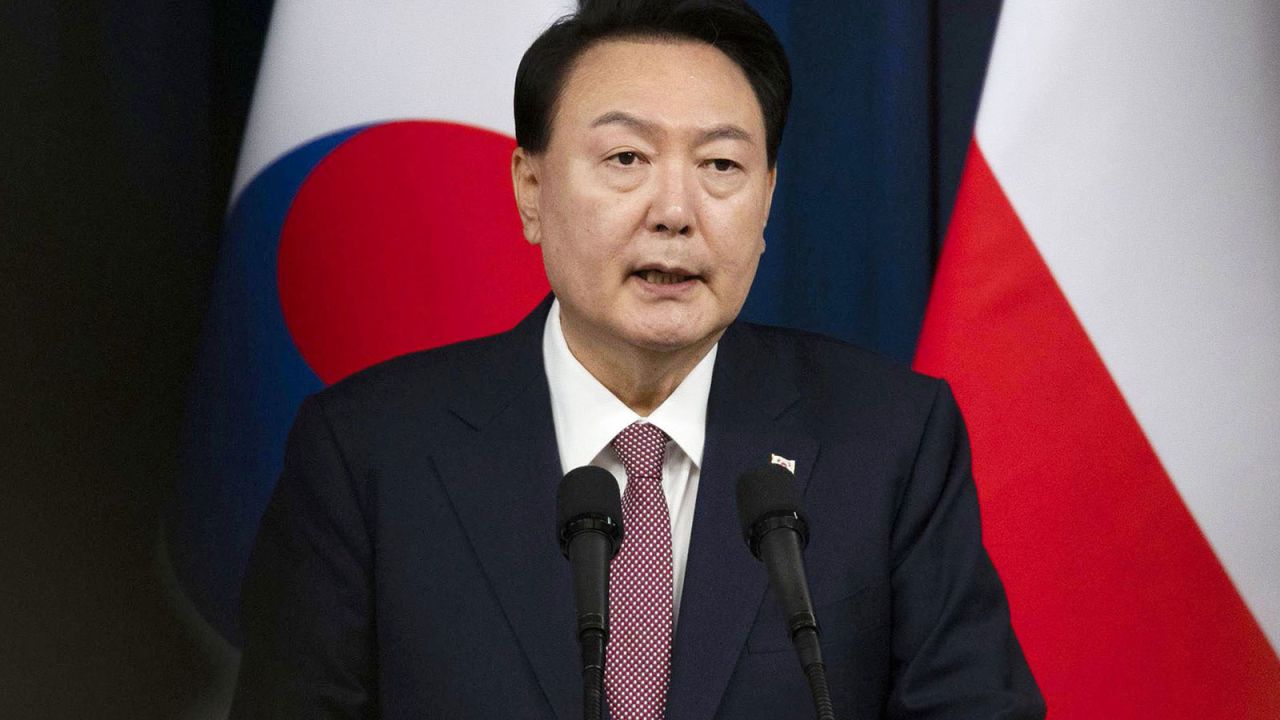South Korean President Yoon Suk Yeol made his first appearance Tuesday before the Constitutional Court in a watershed moment for the nation’s democracy, as judges weigh whether to permanently remove him from office following December’s failed martial law declaration. The embattled leader, who became the first sitting South Korean president to face criminal arrest, promised to cooperate with the proceedings that will determine his political fate.
Yoon’s dramatic court appearance, arriving in a justice ministry van from his detention center, drew thousands of protesters on both sides of the political divide to the Constitutional Court. The president, permitted to wear a business suit rather than his prison uniform, faced direct questioning about his controversial actions during the December crisis that plunged South Korea into political turmoil.
Central to the proceedings was Yoon’s response to allegations that he had ordered military commanders to forcibly remove lawmakers from parliament to prevent them from voting down his martial law decree. When questioned about these serious charges, Yoon offered a simple denial, responding “No” to the judge’s inquiry.
The political crisis stems from Yoon’s December 3 declaration of martial law, a dramatic move that lasted merely six hours before being overturned by parliament. The failed attempt to suspend civilian rule, which Yoon’s team claims was necessary due to alleged election fraud following the opposition’s landslide parliamentary victory last year, led to his impeachment and subsequent criminal investigation for insurrection.
Court spokesperson Cheon Jae-hyun revealed that Yoon’s legal team has requested testimony from at least 24 witnesses, including election officials, as they build their defense. However, the parliamentary-appointed prosecution team sharply criticized Yoon’s statements as “largely contradictory, irrational, and unclear,” warning that continued evasion of responsibility would only harm his case.
The stakes could not be higher for South Korea’s political future. Should the court rule against Yoon, he would lose the presidency, triggering new elections within 60 days. This constitutional crisis has been further complicated by Yoon’s refusal to cooperate with the Corruption Investigation Office’s criminal probe into his martial law declaration.
Legal expert Kim Nam-ju suggested that Yoon’s decision to appear at the Constitutional Court hearings might be more about mobilizing his supporters than advancing his legal defense. This assessment gained credence following Saturday’s events, when hundreds of pro-Yoon protesters attacked the court building after his detention was extended, leading to multiple arrests.
Despite Yoon’s stated willingness to cooperate with the Constitutional Court, his continued refusal to engage with the criminal investigation could ultimately undermine his case. Kim warned that this selective approach to legal proceedings would likely work against him, demonstrating a failure to fully adhere to the legal framework.
The trial, which could extend for months, represents a critical test for South Korea’s democratic institutions. Yoon’s unprecedented situation as both an impeached president and criminal suspect has created complex legal and political challenges that the nation’s judicial system must navigate while maintaining public trust and constitutional order.
As South Korea grapples with this historical moment, the outcome will not only determine Yoon’s political future but also set crucial precedents for presidential accountability and the balance of power in one of Asia’s most vibrant democracies.



